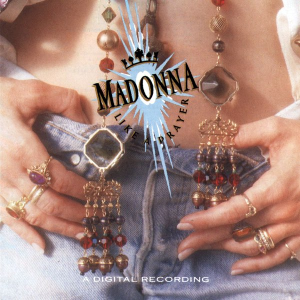I was inspired by a podcast called The 500 hosted by Los Angeles-based comedian Josh Adam Meyers. His goal, and mine, is to explore Rolling Stone Magazine's 2012 edition of The 500 Greatest Albums of All Time.
Album: #240
Album Title: Can't Buy A Thrill
Artist: Steely Dan
Genre: Jazz Rock, Soft Rock, Pop, Folk Rock
Recorded: The Village Recorder, West Los Angeles, USAReleased: November, 1972
My age at release: 7
How familiar was I with it before this week: QuiteIs it on the 2020 list? Yes, at #168, up 72 places from 240 since 2012
Song I am putting on my Spotify Playlist: Do It Again |
| Steely Dan's Can't Buy A Thrill album cover |
Can't Buy A Thrill was the debut record by American Jazz Rock band Steely Dan and became the second of three records by the group to make The 500 list. In January, 2021, my friend Heather guest-blogged about about one of them – album #386, Pretzel Logic. She plans to return in about two years to write about the stronger performing album, Aja, at #145.
 |
| Steely Dan's Aja album cover, #145 on The 500 |
Last April, my wife and I got a chance to see Pretzel Logic, a Canadian tribute band who perform the music of Steely Dan. With us was Heather and her husband. Also sitting in the front row were two other guest bloggers, Gary Fowler who wrote about Funky Kingston by Toots and The Maytals (#380) and Doug Hampson who wrote about Siren from Roxy Music (#374). It was a memorable 500 Blog reunion.
The band Pretzel Logic is a nine-piece group from Toronto who faithfully recreate the complex songs from Steely Dan’s ninerecord catalogue. The massively talented musicians capture the rich harmonies, saxophone and trumpet solos, intricate keyboard and guitar melodies with seemingly effortless precision. I was riveted. If you get a chance to see them...go!
 |
| Pretzel Logic performing in April, 2023 at Eastside Bar & Grill |
As I prepared to write this post, I chuckled a little about my introduction to the band. It was in the summer of 1974 when the song Ricky Don't Lose That Number was an omnipresent hit on the radio. My parents had sent me on a wonderful, one-week vacation at a summer camp called Canterbury Hills Camp, nestled in the beautiful forest of the Niagara Escarpment near Ancaster Heights, Ontario. I spent seven glorious days swimming, canoeing, making crafts, learning archery and singing songs around a campfire.
Although we hiked and camped in a tent one evening, I spent most nights in bunkhouses. Despite the fact that it was a camp run by the Anglican Church, I had a bunkmate who told me the dirtiest jokes and shared the most offside stories I had ever heard. I can't remember his name, but I do remember one thing he said when Ricky Don't Lose That Number played on a nearby radio.
"Steely Dan was named after a dildo," he chortled. I had no idea what he meant, but I laughed anyway. It would be some time before I learned what a "dildo" was and I have no idea how a nine-year old had this information (I suspect he had older brothers) I learned, much later, that he was correct. Steely Dan had taken their name from a fictional, steam-powered dildo mentioned in the William S. Burroughs novel, Naked Lunch.
 |
| Naked Lunch by William S. Burroughs |
Can't Buy A Thrill is a wonderful record full of familiar hits, including Do It Again and Reelin' In The Years. It also features the hit single (in Canada anyway) Dirty Work. I've heard Dirty Work hundreds of times without paying close attention to the lyrics. I suspected it was more about the killer saxophone solo by studio musician Jerome Richardson. However, after listening to the companion episode of The 500 Podcast, I was surprised to learn that it is a song of self-loathing, written from the perspective of a man who is cheating with another man's wife. A remarkable bit of lyrical writing for two men in their early twenties.
It delights me when new information helps me reframe something I have enjoyed listening to for many years and yet have misunderstood. Discoveries like this are gems. As I work my way through the next 240 records on The 500, I hope to uncover more. It is a learning thing. For now I will never listen to Dirty Work in the same way again. In the meantime, I look forward to hearing Pretzel Logic perform the song the next time they’re in London.







.jpg)
.jpg)

.jpg)






.jpg)


_(cropped).jpg)
_(21162633589)_(cropped)_(cropped).jpg)










.jpg)





